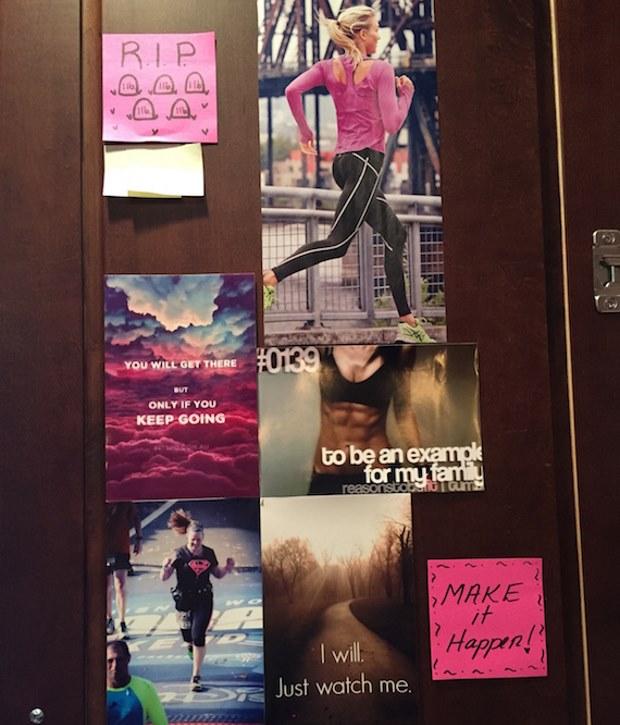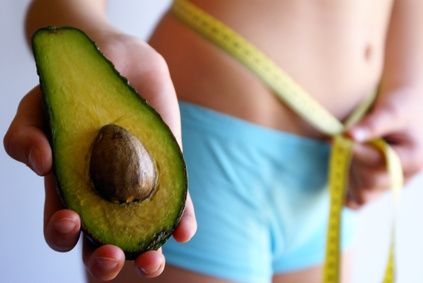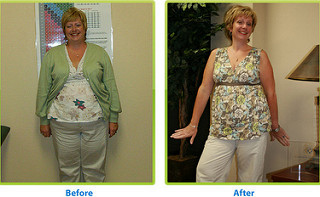Hittle had tried several fad diets, but every attempt just derailed her further.
"Every time I would do one of these diets and it failed, I would fill my head with so much negativity, saying, 'You'll always be fat, you'll never lose weight, why did you even try?' " she recalls. The shame and regret would be so consuming, she'd spend up to a month drowning her sorrows in more junk food. Then one day something clicked. "I realized the one thing I had never focused on was my thoughts," she says.
Indeed, what ultimately worked for Hittle was changing the patterns of thinking that had fostered such an unhealthy lifestyle. From that point on if she slipped up, instead of turning to bad food, she would try to work out a little longer that day. If she ate an unhealthy dinner, she made sure to start the next day with egg whites. "I could go to bed knowing that tomorrow was a new day," she says. "It wasn't always perfect, but it was a big part of my weight loss journey." She also had to change the negative messages she was sending herself about her weight loss efforts.
"Every time I'd say something terrible to myself, it would keep the cycle going," she says. "I made a vow that I needed to support myself the way I would a friend or a loved one."
If she indulged in one off-the-diet brownie, she would vow to work out longer than usual the next day. "That immediately stopped the voices that would cause me to go for the whole pan," she says. And it helped with exercise, too.
"Before, I would say something like 'Look at you, you're so fat you can't even make it around the block. You're breathing so heavy. Why even try?!' This is something I would never say to anyone! The new me chose to say, 'Great job! You're out here walking tonight. Doesn't it feel good?' It wasn't always perfect, but I chose my self-talk very carefully. It's gotten much easier."
She learned to think like an athlete; instead of thinking about diet and exercise, she started to think of herself as a competitor who fuels and trains.
And she learned that she didn't have to be perfect. "The scale fluctuates, and sometimes you make poor food choices," she says. "But when I believed in myself, I stopped beating myself up over it. I realized that it's the journey, not the destination." Creating an infrastructure in her life that supports positive thinking and maintenance goals has been critical. "There will be times the going gets tough that you will need to remember why you want it," she says.
When she needs a motivational boost, she turns to outlets such as Pinterest, YouTube, and her favorite health magazines.
And in her kitchen she set up a vision board to remind her of her goals. On the board she posts motivational pictures and notes.
 Photograph courtesy of Jennifer Hittle
Photograph courtesy of Jennifer Hittle
"If I'm dragging my feet to get out and run, I just open the cupboard door," she says. "If my girls' goldfish crackers start looking good, I open the cupboard door."
She even made a graveyard out of sticky notes with tombstones that said "1 pound" to represent every pound she lost. If she's up a pound or two before racing season, this helps her set small goals to get back down to racing weight. "I like the visual of placing 1 pound [or sticky note] at a time in the graveyard," she says.
And it helped her face down temptation during a summer barbecue at her home, the day before a 19-mile training run. "When I was about to reach for a drink, I opened the cupboard and looked at my vision board instead," she says. "It reminded me that although I could indulge in that moment, I would rather rock my training run and celebrate in Chicago after the marathon."
Excerpted from Runner's World Run to Lose. The article How Positive Thinking Helps Her Maintain a 140-Pound Weight Loss originally ran on RodaleWellness.com.




